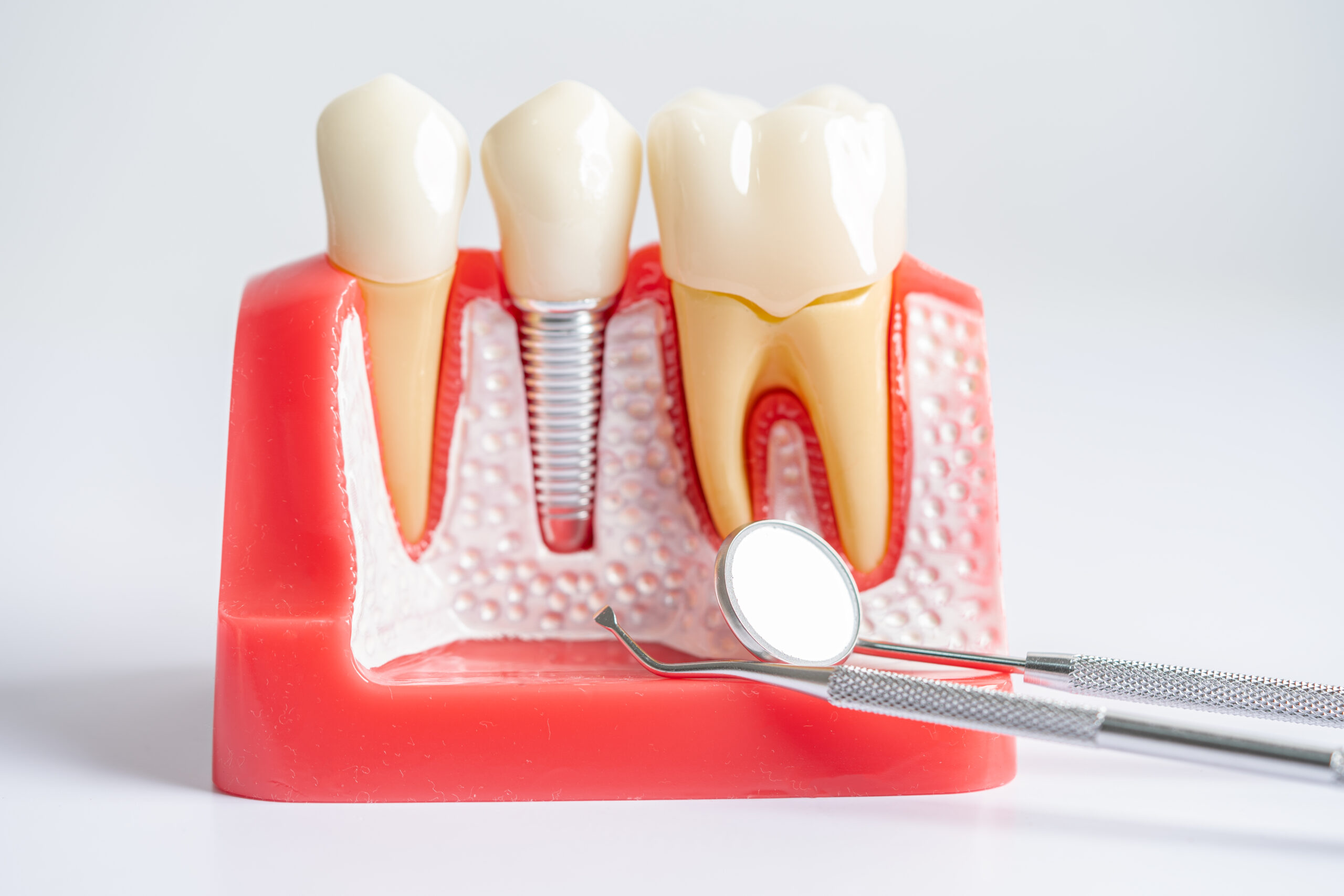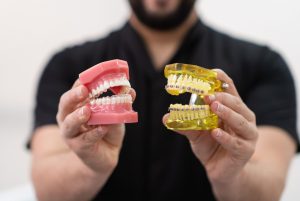A radiant smile is not just a reflection of happiness; it’s also a symbol of good health and confidence. However, for those missing one or more teeth, achieving that perfect smile can seem like an impossible dream. Fortunately, modern dentistry offers a remarkable solution: dental implants.
In this comprehensive guide, we’ll explore everything you need to know about dental implants, from their benefits, procedure, and cost, to choosing a reliable dental implant dentist in Bayswater and Boronia.
What are Dental Implants?
Dental implants are like artificial tooth roots. They’re small metal posts, usually made of titanium, that are surgically placed into your jawbone beneath your gums. Once they’re in place, they act as a sturdy base for replacement teeth, such as crowns, bridges, or dentures. Essentially, they’re a permanent solution for replacing missing teeth, giving you a natural-looking smile and restoring your ability to chew and speak properly.
Two primary types of dental implants are commonly used: endosteal implants and subperiosteal implants.
- Endosteal implants: These involve the placement of titanium posts directly into your jawbone, being the most prevalent type.
- Subperiosteal implants: Suitable for individuals with inadequate jawbone density, these implants consist of a metal frame positioned beneath your gum tissue but above the jawbone, offering support for artificial teeth.

The Dental Implant Procedure
The dental implant process starts with a thorough consultation with your dentist. During this initial visit, your dentist will assess your oral health, discuss your goals and expectations, and formulate a personalised treatment plan tailored to your needs.
The dental implant procedure typically involves several stages:
- Evaluation and Planning: Your dentist will conduct a comprehensive examination, which will include special X-rays and CT scans to assess the condition of your jawbone and surrounding structures. Based on this evaluation, a customised treatment plan will be developed.
- Implant Placement: In a minor surgical procedure, the dental implant (usually made of titanium) is precisely placed into the jawbone. This implant serves as a sturdy foundation for the replacement tooth or teeth.
- Osseointegration: Over the next few months, the implant fuses with the surrounding bone tissue in a process called osseointegration. This integration ensures stability and strength, making the implant virtually indistinguishable from natural teeth.
- Restoration: Once osseointegration is complete, a prosthetic tooth or crown is attached to the implant, restoring both function and aesthetics.
Benefits of Dental Implants
The benefits of dental implants extend far beyond just filling the gaps left by missing teeth. Here are some of the key advantages:
- Natural Appearance. Dental implants look and feel like real teeth, providing a seamless and natural-looking smile.
- Improved Functionality. Unlike removable dentures, dental implants allow for normal eating, speaking, and chewing, without the fear of slipping or discomfort.
- Longevity. With proper care, dental implants can last a lifetime, making them a cost-effective and durable solution.
- Preservation of Jawbone. By mimicking the natural tooth root, dental implants stimulate the jawbone and prevent bone loss, maintaining facial contours.
- Enhanced Comfort and Confidence. Dental implants eliminate the discomfort and inconvenience of loose dentures, allowing you to smile and speak confidently in social and professional settings.

Potential Risks and Considerations
Like any surgery, dental implants come with risks such as infection, bleeding, and discomfort, which are usually temporary and manageable.
A specific risk is peri-implantitis, an infection around the implant site that can cause bone loss and implant failure if untreated.
Good oral hygiene and a healthy lifestyle are key to implant success, while smoking, poor oral care, and certain medical conditions can increase the risk of failure. Choosing an experienced implant dentist and high-quality materials helps reduce complications.
Dental Implant Cost and Insurance Coverage
The cost of dental implants depends on factors like the number of implants, the type chosen, and additional procedures such as bone grafting or sinus lift. Consulting with an implant dentist will provide a more accurate estimate based on your specific dental needs.
In terms of insurance coverage, it varies by provider. Some plans may cover part of the cost, while others may not. It’s important to review your policy or consult with your provider to understand coverage. At Dainty Dental Care, we offer flexible financing options to help you manage your implant costs. Contact us to learn more.
Alternatives to Dental Implants
While dental implants offer an excellent long-term solution for missing teeth, there are alternative options to consider. Dental bridges, for instance, involve using the adjacent teeth as support for an artificial tooth or a row of teeth. Dentures, both partial and full, are removable replacements for missing teeth. Implant-supported dentures combine the stability of dental implants with the convenience of dentures, providing a secure and comfortable fit.

Choosing a Dental Implant Dentist in Bayswater and Boronia
Selecting a reputable dental implant dentist is crucial for a successful outcome. Extensive research, seeking recommendations from trusted sources, and reading patient reviews can help in finding a qualified and experienced dentist in Bayswater and Boronia.
It is advisable to schedule a consultation to discuss your needs, evaluate the dentist’s expertise, and gain a comprehensive understanding of the treatment process.
Restore your smile with Dental Implants at Dental Hub Bayswater and Boronia
Dainty Dental Care has been transforming smiles with quality restorative dentistry services in Bayswater and Boronia. Contact us today to learn more about our dental implant services for a more confident, beautiful smile.


